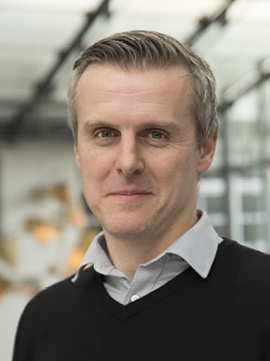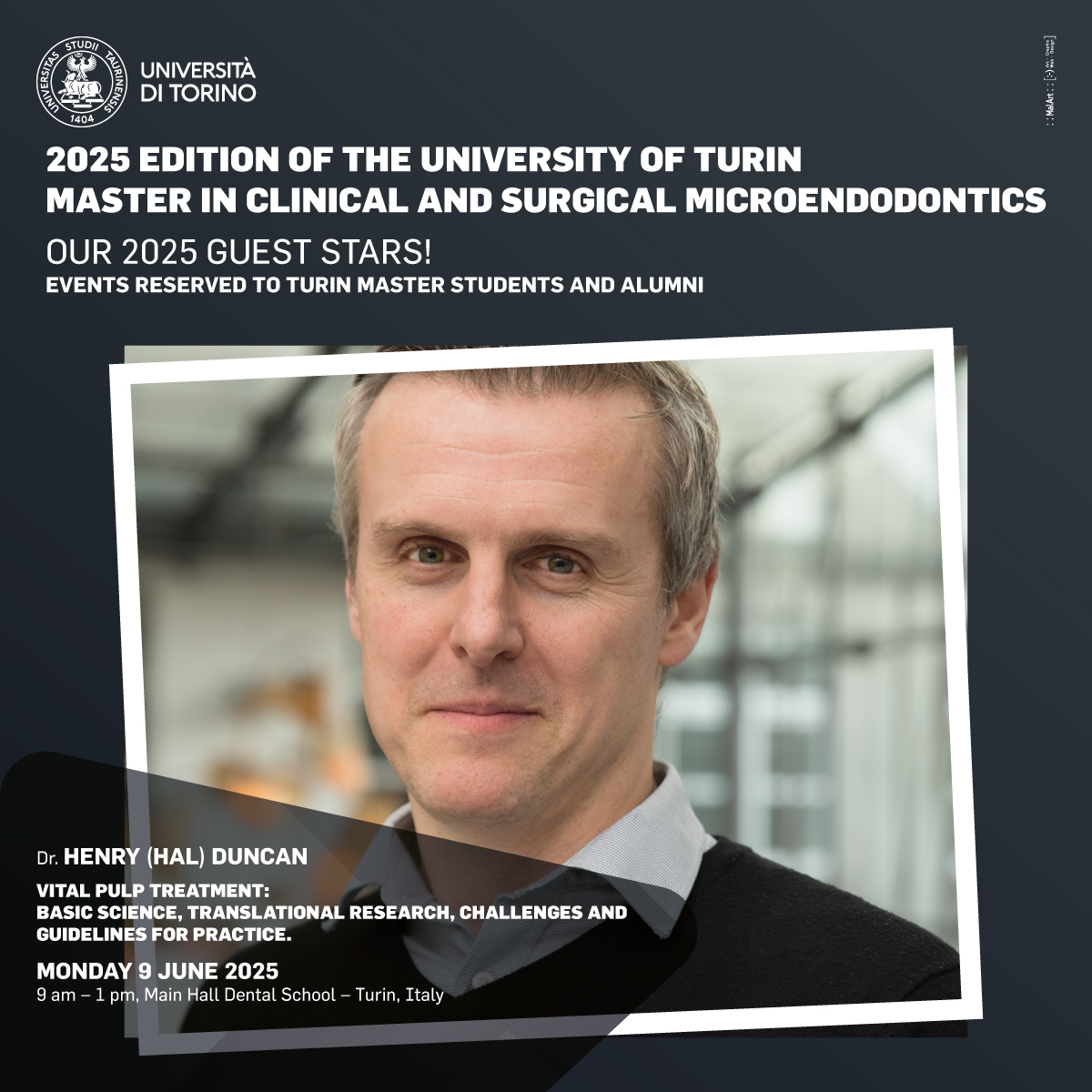
The Main Meetings in Endodontics, in italy and the rest of the world.
Discover all the Friends and all the Distinguished "Special Guests" of the Clinical and Surgical Microendodontics Master Course who have held seminars and conferences at the headquarters of the Dental School Turin - Lingotto.
Biography

HENRY (HAL) DUNCAN


Biography
HENRY (HAL) DUNCAN
Education/Training
1993: Bachelor of Dental Surgery (B.D.S., Glasgow)
1999: Fellowship in Dental Surgery from the Royal College of Surgeons (F.D.S R.C.S., Edinburgh)
2006: Masters in Clinical Dentistry in subject of Endodontics (MClin.Dent., London)
2006: Membership in Restorative Dentistry from the Royal College of Surgeons (M.R.D R.C.S., Edinburgh)
2017: Doctorate in Oral Biology (P.h.D., University of Birmingham)
2018: Specialist Fellowship for Services to Endodontics - Ad Eundem (F.F.D R.C.S.I., Dublin)
2024: Fellow of Trinity College Dublin (F.T.C.D., University of Dublin)
Personal statement
Received his dental degree from the University of Glasgow and his 4-year endodontic speciality training in Guy’s Hospital, King’s College London. For ten years, he worked part-time in specialist referral endodontic practice. He completed his PhD in the University of Birmingham on the subject of ‘Epigenetic approaches to the role of Histone Deacetylase Inhibitors (HDACi) in promoting dentine-pulp reparative mechanisms’. As an Academic Professor and Consultant in Endodontics, he has led endodontic teaching, service delivery and research in Dublin Dental University Hospital (DDUH) for the last 15 years. He has published over 170 international peer-reviewed scientific articles, 60 research abstracts, 18 book chapters as well as editing 3 textbooks, including one in 2023 on ‘Vital Pulp Treatment’. He was the primary author of the recent European Society of Endodontology (ESE) position statement on ‘Management of deep caries and the exposed pulp’ and is the lead of the ‘ESE S3-level Guidelines for the Treatment of Endodontic Disease’. He is the current Editor-in-Chief of the International Endodontic Journal after being an Associate Editor for the International Endodontic Journal since 2014. Hal has completed three sponsored research fellowships in New York University/Rutgers University investigating the role of epigenetic-modifying agents on tooth development and regeneration as well as receiving multiple research grants as principal investigator. In DDUH, he currently maintains a research lab and is the principal supervisor of clinical and scientifically trained PhD students and postdoctoral researchers in his research area of interest basic and translational pulp biology and endodontics. Currently, he is the Director of Research in the DDUH, a Member of the Executive Board of the ESE, the President of the ESE, the Ex-President of the Irish Division of the IADR, the Past-President of the Pulp Biology and Regeneration Group of the IADR. He is a past president of the Irish Endodontic Society as well as an external examiner at home and abroad.
Hal Duncan: Lecture | University of Turin 9th June 2025
Title: Vital Pulp Treatment: Basic Science, Translational Research, Challenges and Guidelines for Practice.
Abstract:
Concerns over the cost and destructive nature of dental treatment have led the profession to examine novel methodologies that develop regenerative treatments and promote minimally-invasive, biologically-based dental restorative solutions. Although an exciting opportunity, vital pulp treatment has traditionally been damned by unpredictable results due to uncertainties over diagnosis and the most appropriate way to handle pulp tissue. Regenerative endodontics hopes to increase predictability, while delivering cost-effective, simple and conservative solutions for our patients. However, what is possible scientifically and what is a pipe dream clinically? It is essential if new directions are to be considered in endodontic practice that we are able to critically assess where we are at present and where as a specialty we need to be in the future. The aim of this lecture is to highlight current opportunities and concerns in vital pulp treatment (VPT) from a scientific and practical viewpoint, while referencing recent position statements and guidelines in this area. The future of VPT will also be considered including essential scientific, translational research and considerations for practice.







